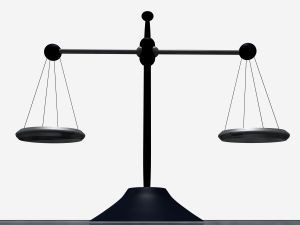 Here is a summary of legal developments in five federal and state court cases last week that involved technology companies, or alleged activities by their users.
Here is a summary of legal developments in five federal and state court cases last week that involved technology companies, or alleged activities by their users.
Samsung Cries Foul, Claiming Jury Foreman in Apple iPhone $1B+ Lawsuit Was Biased
In a motion filed last Tuesday, Samsung’s lawyers asked U.S. District Court Judge Lucy Koh to set aside the jury’s $1.05 billion iPhone lawsuit verdict in favor of Apple. They alleged that jury foreman and retired computer engineer Velvin Hogan failed to disclose that his former Silicon Valley employer Seagate Technology Inc. sued him in 1993, despite being asked by the judge whether he had been involved in any lawsuits.


 A former Chairman of the the Advisory Board of a professional mutual fund pleaded guilty today in federal court to a series of charges in a $13 million conspiracy to defraud in investors by falsely claiming that Praetorian Global Fund Ltd. privately owned pre-IPO Facebook and Groupon stock before each of the social media start-ups went public. In reality, the British Virgin Islands-based fund did not.
A former Chairman of the the Advisory Board of a professional mutual fund pleaded guilty today in federal court to a series of charges in a $13 million conspiracy to defraud in investors by falsely claiming that Praetorian Global Fund Ltd. privately owned pre-IPO Facebook and Groupon stock before each of the social media start-ups went public. In reality, the British Virgin Islands-based fund did not.

 Google and AOL were sued for patent infringement Thursday by New Jersey-based Suffolk Technologies, LLC over their Internet search summary descriptions, or
Google and AOL were sued for patent infringement Thursday by New Jersey-based Suffolk Technologies, LLC over their Internet search summary descriptions, or  Judges know fair use and parody when they see it. Especially when it comes to
Judges know fair use and parody when they see it. Especially when it comes to ![[Onward_Replacement_Image] 6.5.12_Marino_CLE_lawsuit_accuses](https://lawblog.justia.com/wp-content/uploads/2015/05/Onward_Replacement_Image-6.5.12_Marino_CLE_lawsuit_accuses1-300x300.jpg)
![[Onward_Replacement_Image] 6.04.12_Tivo_Patent_Lawsuit_Accuses_Cisco](https://lawblog.justia.com/wp-content/uploads/2015/05/Onward_Replacement_Image-6.04.12_Tivo_Patent_Lawsuit_Accuses_Cisco1-300x300.jpg) Days after Cisco sued TiVo in Silicon Valley federal court for a declaratory judgment over four patents, the maker of
Days after Cisco sued TiVo in Silicon Valley federal court for a declaratory judgment over four patents, the maker of 
